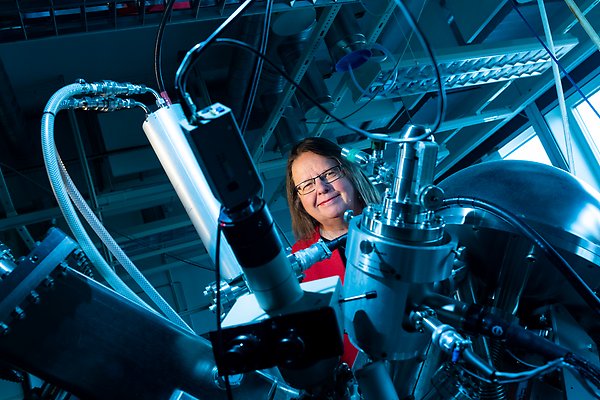Energy and new materials: climate-smart batteries

To manage future energy needs, we have to develop smaller, cheaper, greener recyclable batteries with higher storage capacity and performance. But if Uppsala University’s world-leading researcher is to be able to take the next, decisive step in the development of more effective and efficient batteries, she needs a new analysis tool.
In recent decades, the development of smarter, more effective and more environmentally friendly batteries has been one of the great hopes for the energy systems of the future. Battery research is highly relevant for a more sustainable society, since energy storage is required for continued electrification and the implementation of renewable energy sources.
Lithium-ion batteries are very promising for future energy products, not least for electric vehicles and large-scale energy storage in the power grid. However, current lithium batteries are problematic from the perspective of resources and the environment. Global lithium resources are limited and the element is difficult to recycle efficiently. Smaller, cheaper, recyclable batteries with higher storage capacity and performance are needed.
Developing new battery materials requires research. Uppsala University can contribute vital expertise in this area. One of the University’s internationally prominent research teams is studying battery surfaces and new types of batteries that are tailor-made to control the performance of battery materials.
Battery research builds on an understanding of many complex reactions. In order to phase out hazardous chemicals from the ecocycle, scientists are searching for renewable and recyclable raw materials to replace substances such as copper and cobalt, since the production of these substances involves large-scale carbon dioxide emissions. However, to take the next step in development, reliable experiments need to be carried out with complex battery materials. This can only be done with the help of new technology and a new generation of instruments.
“Batteries will play a crucial role in our transition to a sustainable society. Our role is to generate new knowledge and drive developments forward. We need to be relevant today while keeping our sights on solutions for tomorrow.”
Kristina Edström, Professor of Inorganic Chemistry
